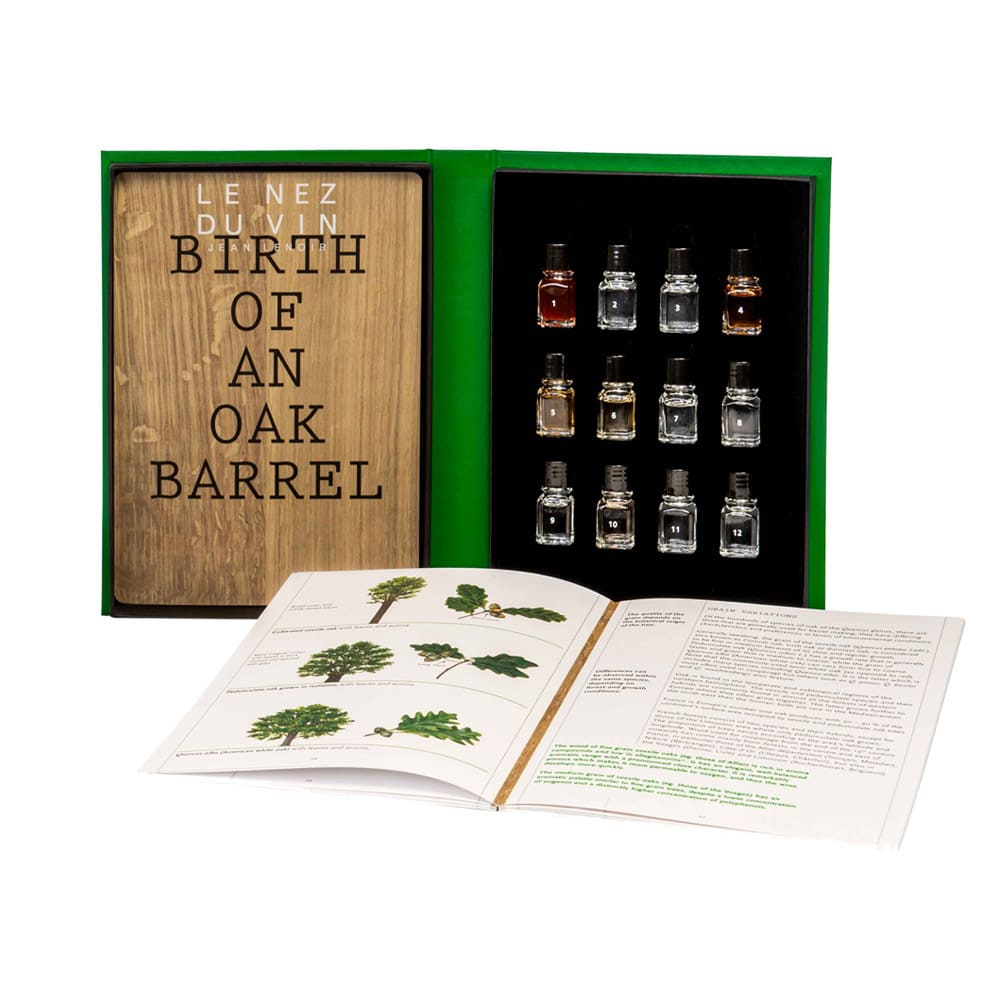Mastering Wine Aroma: Unveiling the Secrets of Wine Scent
Wine tasting is a sensory journey, and understanding the aroma of wine is essential for a full appreciation of its complexity. The aroma, or scent, of a wine can reveal much about its character, origin, and the winemaking process. Mastering wine aroma scent involves developing a keen sense of smell and recognizing the diverse range of scents that a wine can offer. Here’s a guide to understanding and mastering the art of wine aroma.
The Importance of Wine Aroma
Aromas play a crucial role in wine tasting, often providing more information than taste alone. The human sense of smell can detect thousands of different scents, and wine is a tapestry of aromatic compounds that contribute to its overall profile. These aromas can range from fruity and floral to earthy and spicy, creating a complex olfactory experience. Recognizing and understanding these aromas enhances the overall wine tasting experience, allowing for a deeper appreciation of the wine’s nuances.
Breaking Down Wine Aromas
Wine aromas are categorized into three main types:
-
Primary Aromas: These originate from the grape variety itself and are influenced by factors such as the grape’s ripeness and the climate where it’s grown. Common primary aromas include fruity scents like citrus, apple, and berry, as well as floral notes like rose or jasmine.
-
Secondary Aromas: These develop during the fermentation process. They often include yeast-derived scents such as bread dough, brioche, or butter. These aromas are particularly prominent in sparkling wines and some white wines that undergo malolactic fermentation.
-
Tertiary Aromas: These emerge during the aging process, whether in oak barrels or in the bottle. Tertiary aromas can include complex notes such as vanilla, tobacco, leather, and earthy undertones. Aging in oak barrels can impart additional aromas like toast, cedar, and spice.
Developing Your Aroma Skills
Mastering wine aromas requires practice and a refined sense of smell. Here are some tips to help you hone your skills:
-
Use Aroma Kits: Aroma kits are designed to help wine enthusiasts identify and learn various wine scents. These kits contain vials with concentrated versions of common Master Wine Aroma, allowing you to familiarize yourself with each scent and how it appears in different wines.
-
Practice with Everyday Items: Train your nose by smelling everyday items like fruits, spices, and herbs. Comparing these familiar scents to those found in wine can help you make connections and improve your ability to identify specific aromas.
-
Smell Before Tasting: Always take a moment to smell the wine before tasting it. Swirl the wine gently in your glass to release its aromas, then inhale deeply. Try to identify the different layers of scent, and note how they evolve over time.
-
Take Notes: Keep a wine journal where you record the aromas you detect in different wines. Over time, this practice will help you recognize patterns and refine your ability to identify specific scents.
-
Engage Your Senses: Pay attention to how aromas interact with your palate. Sometimes, the scent of a wine can suggest flavors that may not be immediately obvious on the tongue.
Conclusion
Mastering the art of wine aroma is a rewarding pursuit that enhances the wine tasting experience. By developing your ability to recognize and interpret the complex scents in wine, you deepen your appreciation for this age-old beverage. Whether you are a novice or a seasoned connoisseur, understanding wine aromas opens up a world of sensory exploration and enjoyment. So, take the time to refine your olfactory skills, and let the aromas of wine guide you on a journey through its rich and varied flavors.

Related Posts
December 30, 2024 0
How To Make Weekend Greetings More Fun?
Let’s describe how “I hope you had a great weekend.” The day of the week is an essential way of giving the human...
READ MORE
December 23, 2024 0
What Are the Different Ways to Write “How Have You Been?”
The phrase “How have you been?” bears a lot of warm interest, goodwill, and an inquiry about the person’s welfare. Whether in person, through...
READ MORE
Recent Post
What is The Meaning of a Medusa Tattoo?
January 9, 2025
The Meaning of Encanto in Spanish and Origin
January 4, 2025
Equivalent Phrases For “Including But Not Limited To”
December 30, 2024
How To Make Weekend Greetings More Fun?
December 30, 2024
10 Modern Sayings Similar To “Be There Or Be Square”
December 30, 2024
CONTACT

ARCHIVES
Tag
- 303 Stainless Steel Round Bars
- Adult Driving School Near Me
- adult orthodontics treatment
- Affordable Braces Miami
- affordable braces near me
- affordable orthodontist near me
- Affordable SEO UK
- agarwood
- Alloy steel pipe suppliers in India
- Aluminium sheet
- Aluminium tube
- aluminum welding rods
- Amethyst Birthstone
- analyzing bank financial statements
- Ann Cusack's journey
- Ann Cusack's networth
- Anna Sui perfume
- API 5l grade b pipe suppliers in India
- API 5l x42 pipe
- API 5l x52 pipe
- ar 400 plate suppliers
- Ar 500 plate
- ASTM A182 F55 flange
- azzaro perfume
- back pain center
- back pain doctor clifton
- back pain doctor west orange
- back pain specialists
- back pain specialists woodland
- back treatments
- Bag Chain Strap
- baking supplies
- balloon garland Gold Coast
- barbell bench press
- Barbell Exercise
- barbell military press
- barbell squat
- behind the wheel driving school near me
- behind the wheel lessons near me
- Belgium Web Design
- benetton fragrance
- best braces colors to get
- Best hairdresser Randwick
- best kids dentist near me
- best months to visit budapest
- best music theory textbook
- Best Of Istanbul Tours
- best orthodontist in Miami fl
- best orthodontist Miami
- best tattoo cartridges
- best tattoo pen machine
- best time to visit budapest
- Best Vps Hosting in India
- beyonce perfume
- Black Sapphire
- boat tours from trogir
- boat trips from split
- Boiler steel plates
- braces band colors
- braces color wheel
- Braces Colors
- Brass tube
- Brisbane commercial cleaners
- Building Better Glutes
- Bulkhead Female Connectors
- Bulkhead Male Connectors
- Business
- Business Analyst
- Business Failure Statistic
- Business Ideas
- cake decorating supplies
- Call Center Cubicles Columbus
- Call Center Cubicles Tucson
- calvin klein fragrances
- calvin klein ladies perfume
- calvin klein men perfume
- calvin klein perfume woman
- Car Driving School
- Car Transport Express
- carbonation machine
- Career
- casket flowers
- certified driving school Virginia
- Cheap Linux Hosting India
- Cheap Vps Hosting India
- children's orthodontist near me
- Christmas Basket Philippines
- Church Camera System
- coca-cola net worth
- Coca-Cola vs. Pepsi
- coffin flowers
- Color Braces
- commercial building and pest inspecton sydney
- commercial cleaning brisbane
- commercial cleaning companies brisbane
- concrete cleaning services
- Concrete Coatings Maitland
- Concrete Coatings Newcastle
- concrete grinding near me
- convert image to grayscale
- Convert Image to Grayscale Online
- Copper nickel pipe fittings
- copy trading scams
- Crime Scene Cleaners in UK
- Crossbody Bag Straps
- Cumbria Hotel
- cute braces colors
- Cyprus web design
- dark blue braces
- Deadlifts
- Defect Inspection Brisbane
- dental bonding Miami
- dental deep cleaning Miami
- Dental Implants Dentist
- Dental Implants North Miami
- Dental Veneers Houston
- dentist Miami shores
- Dentists open on Saturday
- diesel mens fragrance
- diesel mens perfume
- diesel perfume for men
- Digital Shelf Labels
- Disposable Vapes Online
- Disposable Vapes Online Australia
- dmv approved driving schools
- drivers ed online Virginia
- Duplex flanges manufacturers in India
- duplex pipe suppliers
- duplex tube manufacturers
- Electrician Black Rock
- Electrician Hampton
- Electrician In Hampton
- Electrician In Sandringham
- Electrician Near In Parkdale
- Electrician Sandringham
- Electrolyte Replacement Drinks
- Electronic Shelf Labels
- Emerald Gemstone
- Emergency Electrician Highett
- Eshop Website Brussels
- eshop website design
- excavation Newcastle
- Extreme Cleaning Company
- family bathing suits
- family matching swimsuits
- family swimsuits
- Finance
- Florida orthodontic specialists
- Flower Delivery Alabang
- Flower Shop Paranaque
- food you can't eat with braces
- Franchise Advantages
- Franchise Consultant
- Free High Resolution Image Converter
- Free Online Url Encoder
- Funeral flower arrangement Philippines
- funeral flowers
- Funeral Flowers Philippines
- gainesville driving school
- galvanised steel
- generator installation
- Gift Delivery Philippines
- go travel blog
- go travel tips
- Grants for Small Business
- graphic designer newcastle
- graphic designers newcastle
- Grayscale Photo Online
- Handover Inspection Brisbane
- Handover Inspection Ipswich
- Hastelloy C276 tube fittings
- helium balloons delivered Brisbane
- HIC Resistant steel plates
- Hoarders Cleaning Company
- Home inspection Greater Chicago
- Home inspector greater Chicago
- Hotshot Transport Adelaide
- House inspection Greater Chicago
- how much to spend on baby shower gift
- HVAC Repair Service Omaha
- Image Converter Free
- Inconel fasteners manufacturer in India
- Internet Small Business
- Investment
- Invisalign north Miami Beach
- iOS app developer Queensland
- iOS app developer Victoria
- IS 3589 FE 330 pipe
- IS 3589 FE 410 pipe
- ISMC Weight Chart
- Job Application Filler Extension
- joop homme 200ml
- Knee Pain doctor financial district
- knee Pain doctor jericho
- kynam agarwood
- Lab grown gems
- Laser Treatment for Varicose Veins
- light pink braces
- Linux Vps Hosting India
- Little Oral Andie
- Local SEO Services
- Lunges
- make an image grayscale
- Malocclusion
- Marble Restoration Sydney
- Marketing
- Master Electrician Black Rock
- Master Electrician Parkdale
- matching bathing suits
- matching family bathing suits
- matching family swimsuits
- matching swimsuits
- matching swimsuits for family
- men perfume sale
- mens gift set perfume
- mens perfume uk
- MetLife dentist near me
- MetLife Miami
- Miami childrens dentist
- Miami orthodontist specialist
- Miami shores orthodontist
- mini shaver portable
- Mobile App Development Company in Delhi
- Mobile Gaming App Development
- Mold inspection Greater Chicago
- Mold inspector greater Chicago
- Monel 400 tube fittings
- Monel fasteners
- Monel flanges
- Mother’s day Flowers Philippines
- Mould Cleaning Services in UK
- Mould Removal Services in UK
- music books
- music teaching materials
- music theory books
- music theory textbook
- name sticker design
- natural Amethyst
- New Home Inspections Brisbane
- New Home Inspections Gold Coast
- New Small Business
- Newcastle excavation
- Newnan dentists
- Nicosia website design
- north miami beach orthodontist
- nose hair trimmer
- NSW Selective Test
- nvestment
- Office cleaning brisbane
- office furniture Houston tx
- Office Furniture Near Me
- oldest bank in india
- Online Business
- online gemstones supplier
- Online Url Encoder
- oral appliance for sleep apnea
- Ors For Dehydration
- orthodontist hallandale fl
- orthodontist in Miami
- orthodontist Miami beach
- Orthodontist near me
- OUTASK
- Outsource SEO Company
- overbite braces
- paco rabanne perfume
- PCI Inspection Brisbane
- PCI Inspection Gold Coast
- pediatric dentist in Miami
- pediatric dentist miami
- pediatric dentist Miami fl
- pediatric dentist North Miami
- pediatric offices near me
- pen tattoo machine
- pepsi net worth
- perfume for men
- perfume for women
- perfume for women uk
- perfume sets for women
- permanent retainer
- Petrol Pump Fraud
- petrol pumps
- police perfume
- police women perfume
- porcelain veneers near me in Houston
- power chains braces
- Private Ephesus Tour
- Professional Tattoo Equipment
- Ptz Camera System
- Ptzcam
- rechargeable lights
- Recruitment Agencies In Sydney
- Recruitment In Newcastle
- Refrigerator Repair Omaha
- reliable car transport
- Residential Electrician Highett
- rihanna perfume
- rihanna's perfume
- rotary machine
- rotary tattoo machine
- S355j2+n plate
- S355MC steel plate
- Sanitary globe valve
- Sanitary valves
- sciatic back pain treatment
- Secure Url Shortener
- Security
- sell house yourself
- sell your home yourself
- Send flowers Philippines
- SEO Company Singapore
- SEO for Tech Companies
- SEO Pricing Singapore
- service charge
- shading needles
- Simplify Job Application Chrome Extension
- sleep apnea clinic in midtown
- Small Business Facts
- Small Business Ideas
- Small Business Source
- Small Business Success
- sony net worth
- south Miami orthodontist
- split boat tours
- Squats
- Squatters Cleaning Company
- Stainless Steel 202 Round Bar
- stainless steel coil tubing
- Stainless steel flux core wire
- Starting Small Business
- sticker design
- Successful Small Business
- Suicide Cleaning Company
- sunny isles beach orthodontist
- Super Duplex Pipe
- super duplex round bar
- Sydney High School Ranking
- Sympathy Flowers Philippines
- tatoo needles
- tattoo cartridge needles
- tattoo cartridges
- tattoo gun
- tattoo machine
- tattoo needles
- Tattoo Supplies Near Me
- tattoo supply
- Teeth Whitening
- things to do gothenburg
- things to do in Argentina
- time is money
- Tiny Url Alternative
- titanium pipe
- Titanium welding rod
- top sights in glasgow
- Treatment for Spider Veins on Face
- trouble chewing
- Unattended Death Cleaning Company
- underbite braces
- underbite surgery
- UNS S32750 Plate
- used office chairs
- Valentine's day flowers Philippines
- victorias secret perfume
- Video Production Company near Me
- VIP pediatric
- virginia driving school
- walk in dental clinic near me in Peachtree City GA
- watch movies for free
- Website Design in Belgium
- website design in Cyprus
- website scam detector online
- What Doctor Treats Varicose Veins
- what is a service charge
- what is an underbite
- What kind of doctor specializes in veins?
- When to see a Vascular Doctor
- wireless power supply
- wireless tattoo battery grip
- wireless tattoo machine
- wireless tattoo pen
- wireless tattoo power supply
- women perfume gift set
- yoose
- yoose mini shaver
- Zcam







